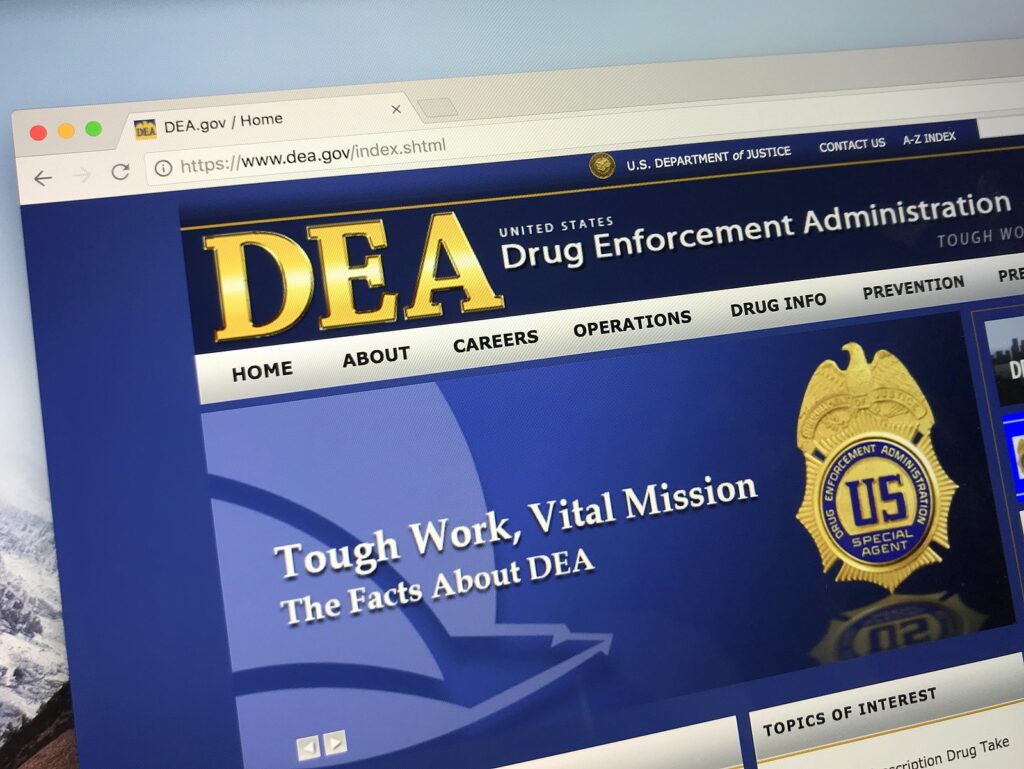In Indiana, a classification system categorizes all illicit drugs and controlled substances according to their risk or potential of abuse and addiction. Drug classifications, referred to as schedules, are numbered on a scale from 1 to 5 and can be influenced by several factors, including the level of tolerance for medical treatment, physical dependency, and psychological dependency.
Although drug schedules are developed and regulated by the Federal government and Indiana legislature, the Indiana State Board of Pharmacy is legally permitted to suggest modifications, additions, and omissions to the state legislature at any time. So, while marijuana may be a Schedule I drug now, by next year it could change without warning.
Continue below to learn about schedule 1 through schedule 5 drugs, including possible sentences for such drug convictions in Indiana.

State Drug Schedules and Examples
Schedule 5 Drugs
A drug is a Schedule 5 substance if it has lower abuse potential than a Schedule 4 drug, is medically accepted, and is less likely to cause physical or psychological dependency than a Schedule 4 drug. This includes non-narcotics such as Tylenol, Codeine, and similar OTC drugs.
Schedule 4 Drugs
A drug is a Schedule 4 substance if it has lower abuse potential than a Schedule 3 drug, is medically accepted, and causes limited physical or psychological dependency than that of a Schedule 3 drug. This includes drugs like tranquilizers, clonazepam, diazepam, and similar benzodiazepines.
Schedule 3 Drugs
Schedule three drugs are considered to be any drug that has a moderate risk of abuse, but less dangerous than Schedule one and two drugs. This includes drugs like testosterone, anabolic steroids, ketamine, codeine, and Buprenorphine (Suboxone).
Schedule 2 Drugs
Schedule two drugs are considered to be any drug less dangerous than Schedule I drugs. They may have legitimate medical uses, but with a high risk of abuse. Schedule II drugs include cocaine, crack, PCP (phencyclidine), opium, methamphetamines, amphetamines, hydrocodone, morphine, oxycodone, and methadone.
Schedule 1 Drugs
Schedule one drugs are considered to be the most dangerous and have the highest abuse potential. They have a high potential for physical and psychological dependency, with no legitimate medical purposes or uses. Drugs like this include heroin, mescaline, peyote, tetrahydrocannabinols (THC), MDMA (Ecstasy), and LSD (lysergic acid diethylamide).
What to Expect From a Drug Conviction in Indiana
The level of punishment for drug crimes largely depends on two factors: the type of illegal substance and the quantity of it. Such penalties range in severity, from minor fines and short-term probation to first degree felonies and mandatory jail time. Habitual violations for the same offense or drug, as well as various other factors, will also impact the severity of a person’s drug-related sentence.
Are you currently facing drug charges in Indiana? Contact the Law Office of David E. Lewis at 317-636-7514 for intelligent and skilled drug crime attorney in Indianapolis, Indiana. We represent adults and juveniles in drug possession, drug trafficking, and drug manufacturing cases.
Related Posts:
State and Federal Penalties for Getting Caught With Prescription Drugs
What are Legend Drugs?
Can I Get Arrested For My Friend’s Drugs?

